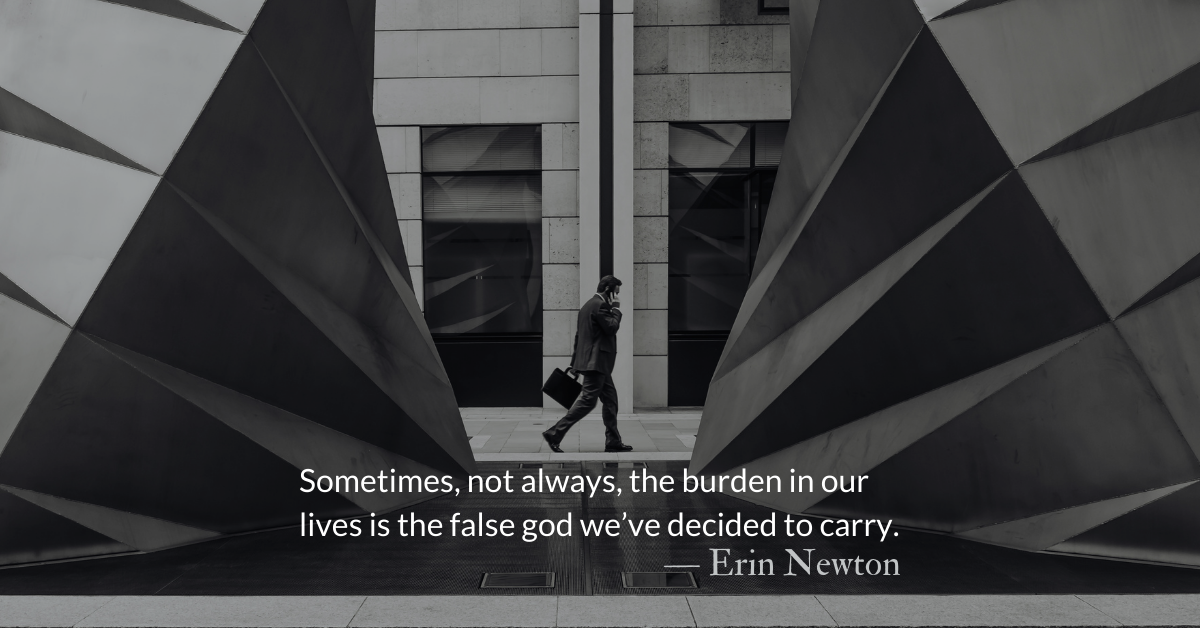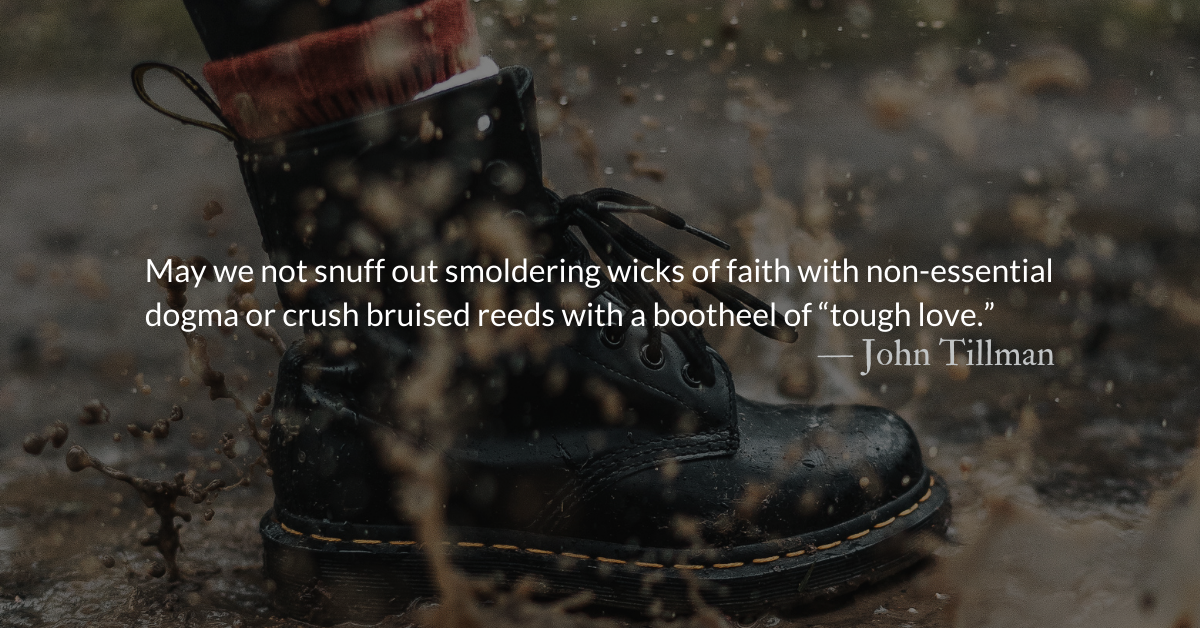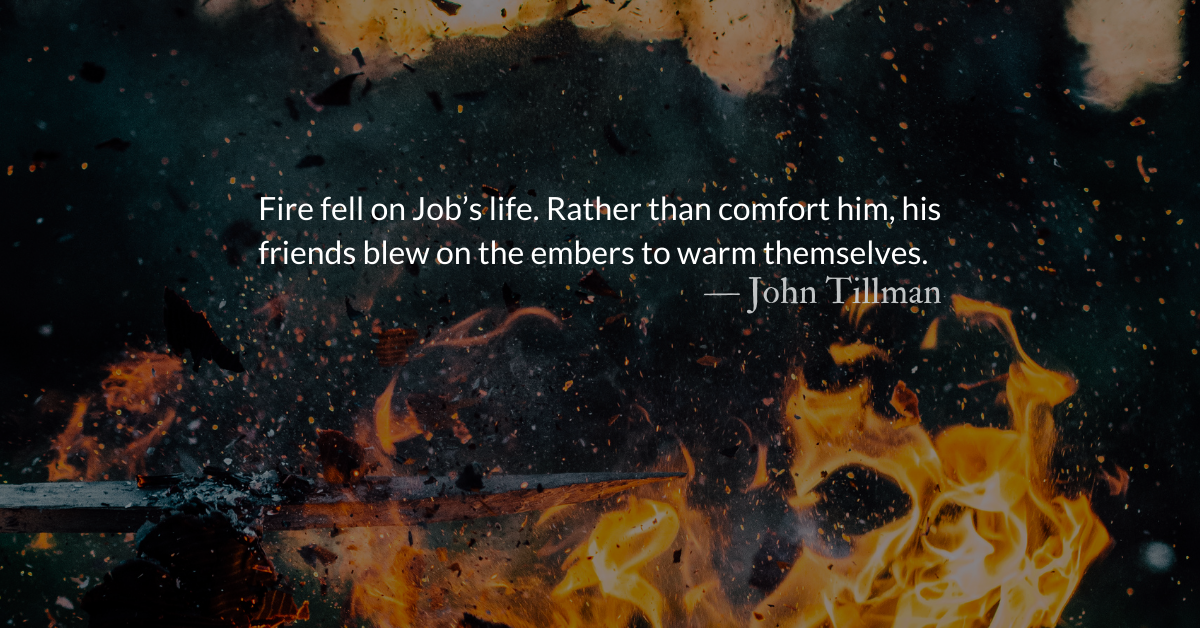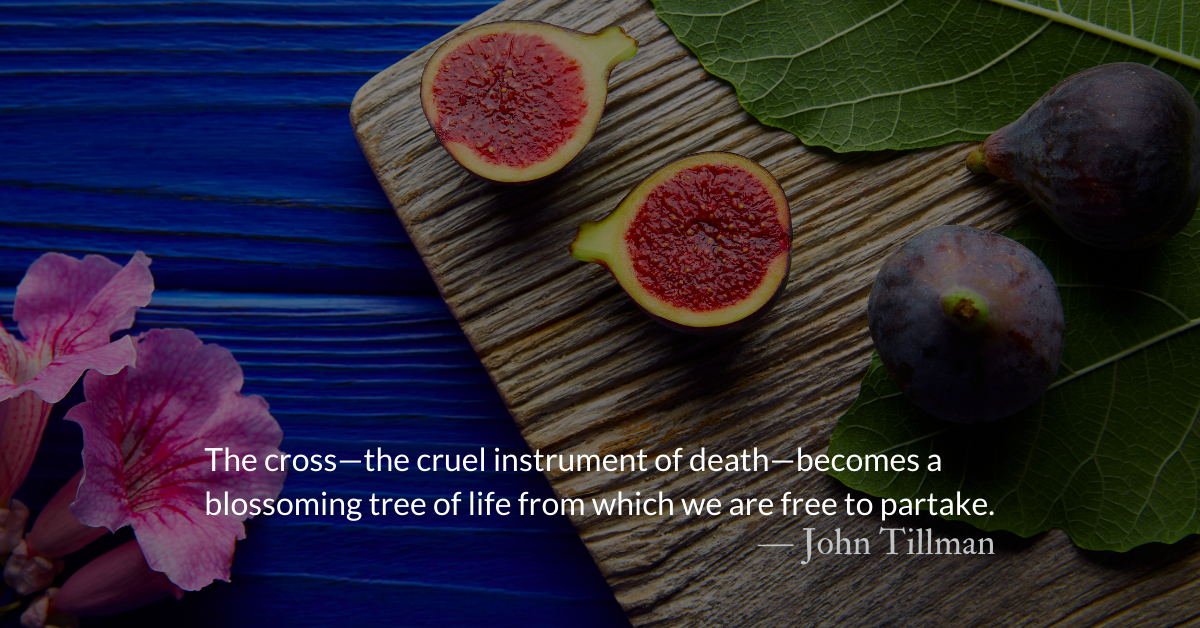Scripture Focus: Psalm 68:19
19 Blessed be the Lord who daily bears our burden. God is our salvation.
Isaiah 46.1-2
1 Bel bows down, Nebo stoops low;
their idols are borne by beasts of burden.
The images that are carried about are burdensome,
a burden for the weary.
2 They stoop and bow down together;
unable to rescue the burden,
they themselves go off into captivity.
Reflection: Platforming Idols
By Erin Newton
“Important” people are easy to spot. These social influencers are usually surrounded by crowds. Royalty and the political elite are transported in special caravans. The importance of a person is often depicted by how they are presented to the common people. (Even Star Wars’ Boba Fett is mocked for walking instead of being carried as a symbol of status.)
The vision set forth in Psalm 68 is a royal procession. God has cleared away his enemies, he goes before the people who sing songs of the great deeds he has done. Gifts from foreign kings are brought to his temple sitting high upon a mountain. All while the earth trembles at his presence.
God is lifted high to the center of attention, glory, and majesty. Amid this promenade, an interesting statement is made. God daily bears our burdens.
The ancient world had religious ceremonies where idols were carried out among the worshippers. Images gilded in gold and set with precious gems would ride upon platforms for the crowd to revere. However, Isaiah 46.1 reveals the true nature of these gods. “The images that are carried about are burdensome, a burden for the weary.” These gods, once exalted in festivals, are a millstone around the neck of the people. They go from deities to rubbish, “…unable to rescue the burden, they themselves go off into captivity.”
What a difference between the gods of the earth and the true God of heaven!
The psalmist expressed not only the magnificence of God but the unique nature of his intercession for his people. God is not the burden on our backs. My early life was one filled with extensive legalism. The daily spiritual checklist that I thought defined my worth was burdensome. Legalism did not anchor me in faith, it anchored me into hell.
Are there things you have trusted that were more burdensome than you imagined? Sometimes, not always, the burden in our lives is the false god we’ve decided to carry. It is time to remember that God is the one bearing our burdens. Abide in him.
“Come to me, all you who are weary and burdened, and I will give you rest. Take my yoke upon you and learn from me, for I am gentle and humble in heart, and you will find rest for your souls. For my yoke is easy and my burden is light.” (Matthew 11.28-30)
Divine Hours Prayer: The Call to Prayer
Be glad, you righteous, and rejoice in the Lord; shout for joy, all who are true of heart. — Psalm 32.12
Today’s Readings
Proverbs 6 (Listen – 3:22)
Psalm 68 (Listen – 4:26)
Read more about Gods of Ruin and Ridicule
We must decide every day whom we will serve. The gods of this world bring ruin and ridicule.
Read more about Lamenting Materialism
Today, Ba’al wouldn’t be a rain god, he’d be Gordon Gekko. Or Bernie Madoff. Or Jordan Belafort…Materialism is one of the chief idols of our age.











